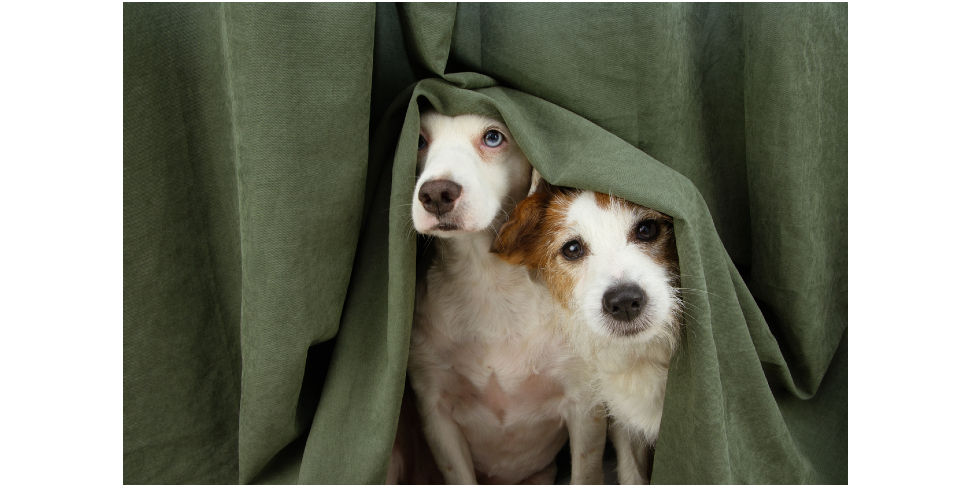Simple Remedies for Your Pup’s Anxiety

We adore our furry friends and would do anything for them. It would be just peachy if they could communicate their needs verbally, wouldn’t it? Unfortunately, they can’t, so we need to be more watchful for the signs that something may be wrong with them.
A lot of things could make a pup anxious; changes in the environment, loud noises like thunderstorms or firecrackers, as well as, separation anxiety-when you need to go out of the house, amongst other things.
Just like us, our pups have emotions and can get anxious. This is completely natural and can be treated. You just have to be observant to recognize the signs that your dog may be suffering from anxiety. The question now is how can you tell when your dog is anxious?
What Are the Anxiety Signs to Look Out For?
Sometimes your canines give you signs that are easy to interpret. But other times, you may have to be observant to pick on these signs. Some of the important behavioral changes that indicate that your pup may be suffering from anxiety may include;
Sudden destructive behavior such as; chewing of everything within sight, barking or whining, restless pacing, sudden aggression, loss of appetite, visible trembling or shaking, excessive drooling or panting, urinating, and defecating
‘accidents’, excessive licking of self, and even depression.
How Can I Help My Dog Feel Better?
Exercise
Sometimes when you are stressed, you unconsciously pass it down to your pup. If you’re too busy to take your dog for the regular walks he’s used to, he’ll become anxious.
The routine change, loneliness, and being in solitary can contribute to the stress and anxiety level of your dog. And this can be fixed by simply taking your pup outside often to stretch and get some fresh air. Exercise does wonders for the general wellbeing of your dog; a tired dog is a happy dog.
Massage
Isn’t it the best feeling ever when we are being massaged? That relaxing feel you enjoy during massages can be felt by your dog. Give your pup the same treatment to help release stress and anxiety. Massage pressure points such as; the ears, head, spine end, and feet for 15 minutes helps to relax them.
Music therapy
Music is therapeutic for all animals. It is soothing and relaxing. When your dog starts to exhibit anxiety signs, play music! Studies have shown that soft rock, reggae, and blues help to calm an anxious or stressed pup.
Calming cloth wrap
To help manage anxiety, calming coats, dog anxiety jackets, and stress relief vests are being manufactured by brands these days. a calming coat applies mild yet constant pressure on your dog’s torso. This mild pressure helps to soothe any feeling induced by travel, noise, and stranger or separation anxiety.
Mental stimulation
If you have observed and noticed that your dog gets anxious about certain isolated events such as thunderstorms or being in a crowd of people, you need to consider some ways of distracting your pup.
Actions geared towards taking your dog’s mind off what causes his anxiety will help him focus on something else and this mental stimulation can have a calming effect on your canine.
Try working on new tricks and rewarding with treats. The type of trick doesn’t matter just gives him a lot of attention and love.
Anxiety supplements
Supplements help to calm your canine for short periods and they can also help them sleep better. When buying anxiety supplements, it is important to seek advice from your local vet.
However, dog calming supplements that contain a melatonin-a hormone that rises when your dog sleeps, are the most common type for dog stress and anxiety.
Some dog owners use CBD oil – a compound found in hemp and cannabis to treat anxious pups. Since there’s no scientific data on how this oil affects dogs, it is hard to determine its effect on dogs. If you’re thinking about using CBD oil, you should consult your vet for the best products and possible side effects.
